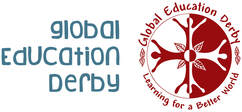 Written by: Yvonne Luce, Global Education Derby, UK (18 August 2022) They say all good things come to an end, as the clock counts down to the official end of the Leaving No-one Behind project. Partnership projects naturally ebb and flow. Leaving No-one Behind has been no exception to this rule. Intensive periods of energising activity have been interspersed with frustrating inactivity enforced by COVID-19 restrictions. The last few months have been very hectic indeed and it was a great joy for our coordinators to meet in Ljubljana, Slovenia in early July 2022. Online interaction is vital to keep communication alive, but nothing can replace face-to-face collaboration for facilitating dialogue, sharing deeper understandings, laughter and fun - especially when in a beautiful, environmentally-friendly, capital city, to awaken the senses. Human beings need to feel connected to each other, and the world around them, to function at their best. Our training programme consolidated project learning on themes of inclusion and marginalisation with a special focus on indigenous peoples and climate justice. It was good to have time to think, talk, share and reflect - together! 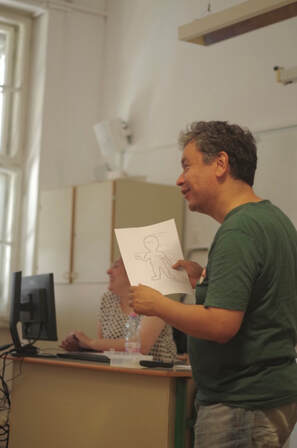 We would like to thank our partner NGO Drusti Bodi Svetloba for looking after us all so well (especially in torrential rain and exceptional heat) and Gimnazija Jožeta Plečnika for their hospitality and help. We discovered afresh just how much work has been happening unheralded in Germany, Slovenia and UK to make the Sustainable Development Goals real and meaningful to young people and their school communities. This is what Erasmus Strategic Partnerships are all about. Many of these activities are available for you to browse, use, adapt and build upon in the teaching resources section of the website. Leaving No-one Behind may officially end in September 2022 but the work goes on.
Global Citizenship Education has never been more relevant. Promoting inclusion, so no-one is left behind, is an international educational priority. Giving a voice to young people, building the confidence of educators to make spaces for “each one to teach one” and improving provision for Special Educational Needs and Disabilities (SEND) are all key messages. These are the underlying principles we have sought to amplify through the teacher guidance section. As one door closes, another one opens. We are grateful for all the friends and colleagues, old and new, who have made this project a success, with their insight and enthusiasm. We leave behind this website as a project legacy, in the hope it will inspire others to become passionate about how global learning can help everyone achieve their potential. May it do so.
0 Comments
 Written by: Yvonne Luce, Global Education Derby, UK (19 October 2021) 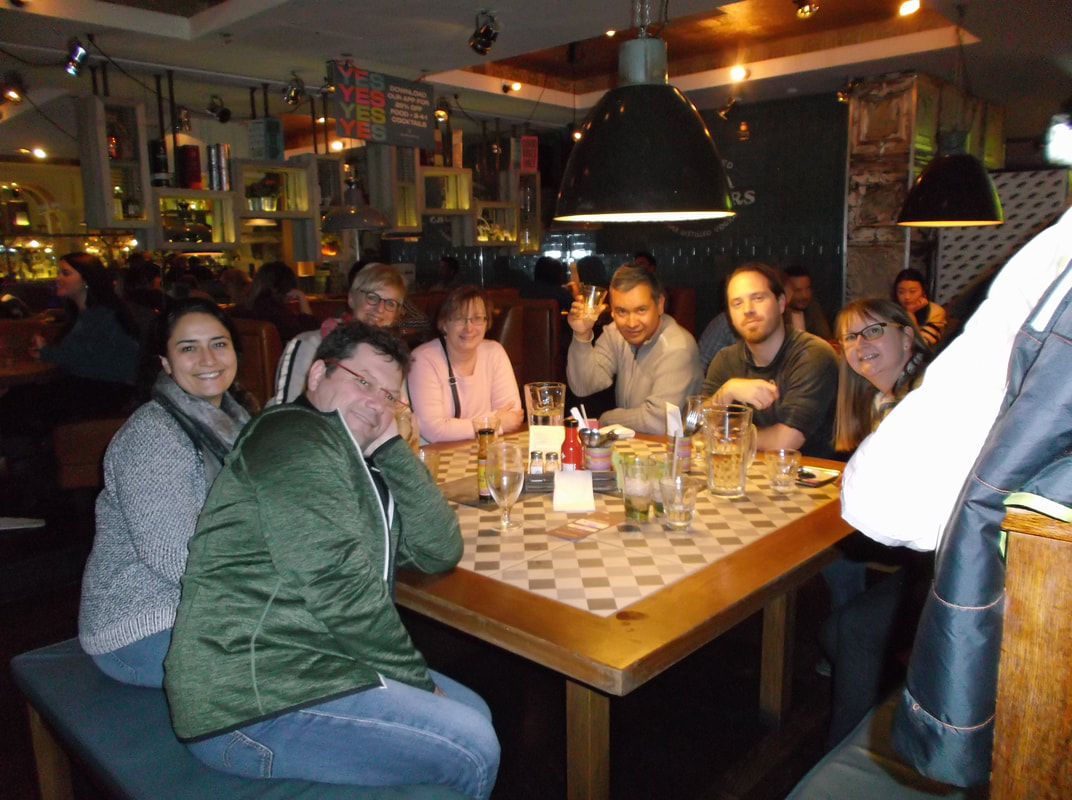 Remembering, reliving and learning from what has worked well will bear fruit. The team pictured together in February 2020 Remembering, reliving and learning from what has worked well will bear fruit. The team pictured together in February 2020 I guess many of us have some inkling of what it means to be left behind after the onslaught and ongoing challenges of Covid-19. All have suffered, the young, the elderly, the lonely, the vulnerable, those who felt secure and those threatened with insecurity through loss of income, relationships, education, work, homes, leisure or health. To name a few of the anxieties, sacrifices and unavoidable dilemmas faced, especially by those less able to withstand catastrophe through no fault of their own. Sustainable Development Goals thread through every area of our lives and their interrelated nature has been laid bare by the pandemic and it's impact on lives worldwide. The Leaving No-One Behind Team have reconvened to discover the Sustainable Development Goals again to take stock of what has worked well and how the project can be used to help students re-engage and recover their learning. Joining together for remote training has supported us as we tentatively look forward to completing activities face to face in 2022. Reminding ourselves, our colleagues and students of past successes and enjoyment is all part of this process. An "Erasmus Day" celebration was used to bring Erasmus project achievements to life once more and broaden awareness of European values in our partner school in Germany. How fantastic is that?  ERASMUS-days in Bobingen 14th – 16th October 2021 Written by: Maria Turner, Dr.-Jaufmann-Middleschool, Germany (19 October 2021) (English translation, followed by German text) The Erasmus Days at the Dr.-Jaufmann-Middleschool are a great annual opportunity to commemorate all our projects and activities and to celebrate Europe and ERASMUS. Pupils can refresh their European and Erasmus knowledge in the process. In a small exhibition, the current projects are presented and a lot of background information about the possibilities with ERASMUS actions are shown written and visual. Do you know how many member states the EU has - and how many countries are accession candidates ? – Our students now know: 27 members (without GB) and 5 candidates (Turkey, Serbia, North Macedonia, Montenegro and Albania. All students who answered a quiz about these – and other interesting facts correctly received a nice gift – sponsored by our National Agency. A celebration with all the award winners on the last ERASMUS Day crowned the week. --- to be continued --- Die Erasmus-Tage an unserer Dr.-Jaufmann-Mittelschule sind alljährlich eine großartige Gelegenheit um an all unsere Projekte und Aktivitäten zu erinnern und Europa und ERASMUS hochleben zu lassen.
Schüler und Schülerinnen können dabei ihr europäisches und Erasmuswissen auffrischen. In einer kleinen Ausstellung werden die laufenden Projekte vorgestellt und viele Hintergrundinformationen über die Möglichkeiten mit ERASMUS Aktionen bildlich und schriftlich gezeigt. Wissen Sie, wieviel Mitgliedsländer die EU hat – und wieviel Länder Beitrittsverhandlungen führen? Unsere SchülerInnen wissen es jetzt wieder: 27 Mitgliedsstaaten (ohne GB) und 5 Beitrittskandidaten (Türkei, Serbien, Nord Mazedonien, Montenegro und Albanien. Alle SchülerInnen die diese und weitere interessanten Fakten zu unseren laufenden Projekten in einem Quizz richtig beantworteten, erhielten tolle Geschenke, gesponsert von unserer Nationalen Agentur. Eine Feier mit allen Preisträgern am letzten ERASMUS-TAG krönte die Woche. --- Fortsetzung folgt --- 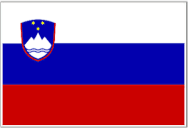 Written by: Robin Dewa, Bodi svetloba NGO, Slovenia (26 August 2020) According to the data published on the Guardian website on August 26, from the Johns Hopkins University, there were 815,707 deaths from Covid-19 worldwide and 23,775,142 cases of Covid 19 worldwide.
As of August 26, 133 deaths were reported due to Covid 19 in Slovenia. How did Covid-19 develop in Slovenia? On 12 March 2020, an epidemic was declared in Slovenia including suspension of all educational activities. Soon, distance learning took place. Kindergartens, primary schools (the first triad), upper secondary schools (for final-year students, including apprentices) reopened on 18 May, while the rest of the primary school students returned on 3 June. Secondary students continued with distance education until the end of the school year with the exception of final-year students which were allowed to undertake final and matura exams. The new school year in Slovenia begins on September 1, in a normal way, unless the next stage of pandemic happens. Due to interruption of our work with students from the Gymnasium Jože Plečnik, our NGO has taken up the research on consequences of Covid-19. Besides deaths of Covid-19, the pandemic has had devastated impact on economies. If we focus only on Slovenia, according to the article by Slovenian economist Jože Damijan from July 25, Slovenia borrowed 6 billion EUR by July 2020. OECD (Organisation For Economic Cooperation And Development) predicts Gross National Income ( GNI) in Slovenia will contract between 7.8-9.1% in 2020 due to Covid 19. This economic collapse in Europe and in the world due to sometimes extreme measures is by some experts considered unreasonable. What are other negative effects of Covid-19 in relation to Sustainable Development Goals ( SDGS) and to the topic of our Leave No One Behind? There is a focus only on Covid-19, though there are many more deaths from other diseases in Europe and especially in the world. Deaths are increasing from causes such as heart disease, stroke and diabetes as Covid-19 cases have priority. Malaria, yellow fever and diseases from malnutrition in developing countries are almost forgotten in the media and are no longer taken care of by donors. Covid-19 has also become an excuse for some governments to curtail civic freedom according to Civic Space Watch . Many people also fear they will be subject to mandatory vaccination in future. Covid-19 has brought about rising nationalism, isolationism, xenophobia and racism; every man for himself mentality. There are lots of fake news as well. For example, according to the survey of Slovenian Valicon agency from August 25, only 44% of Slovenian participants in the survey believe the virus is of natural origin, while 36% of Slovenian participants in the survey believe the virus has been artificially created in the lab and intentionally released and 12% of Slovenian participants in the survey don't believe in Covid-19 at all. The WHO has also warned of vaccine nationalism as the distribution of vaccines is mostly given to citizens of rich countries, which are pouring billions of dollars into this research. Covid-19 has greatly heightened economic and social inequalities. Lockdown policies imposed by many governments to combat Covid-19 have particularly hurt the working class people in both developed and especially in developing countries as the inability to travel to the places of work has led to a significant loss of earnings by this group. . Female-headed households, persons with lower levels of education and the informal sector are hit hardest in the digital divide while those well-educated with digital skills who have been able to work from home with access to the internet have even gained. Covid-19 has had a devastating impact also on more than 476 million indigenous people around the world. Throughout history, indigenous peoples have been decimated by genocidal warfare and diseases brought from elsewhere. Prior to Covid-19, indigenous peoples already faced extreme inequalities and discrimination such as inadequate access to health care, clean water and sanitation. As indigenous peoples have worked primarily in subsistence economies and in the informal sector, they have been particularly hard hit, especially indigenous women. In Brazil, for example, some indigenous reserves have also been illegally invaded by miners, loggers, and land grabbers who introduced Covid-19 there. On the other hand, the super rich have become a whole lot richer during Covid-19. The article by Hiatt Woods at the Business Insider website, dated 3 August (https://www.businessinsider.com/billionaires-net-worth-increases-coronavirus-pandemic-2020-7), says that in the USA alone, billionaires such as Bezos, Musk, and Zuckerberg have increased their total net worth $637 billion during the Covid-19, while more than 40 million Americans filed for unemployment. And what are negative effects of our combat against Covid-19 for nature? An extreme rise of using disposable single-use face masks with antibacterial effects and protection from droplet infections and other protective gear such as gloves and hand sanitizers has already had negative effects on soil, rivers and oceans contributing to greater amounts of plastic waste. The U.N. estimates that global sales of such face masks will increase 200 times from a year ago to $160 billion this year, and around 75% of the used masks and other pandemic-related plastic waste will end up in landfills or floating on the seas. To cut the long story short, it seems Covid-19 has so far left almost everyone behind on the road towards the SDGs. Now it depends on the actions of ordinary people, whether we will reorient to address sustainability again or we'll just let Covid-19 reverse decades of progress towards sustainability and more just world for everyone. The Covid-19 health crisis will not end until it ends for everyone. |
AuthorAll blog posts are written by our project partners. Archives
August 2022
Categories |
|
|
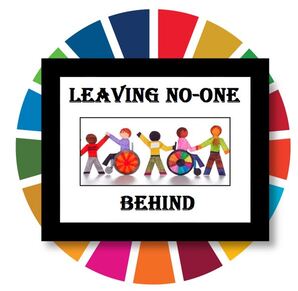
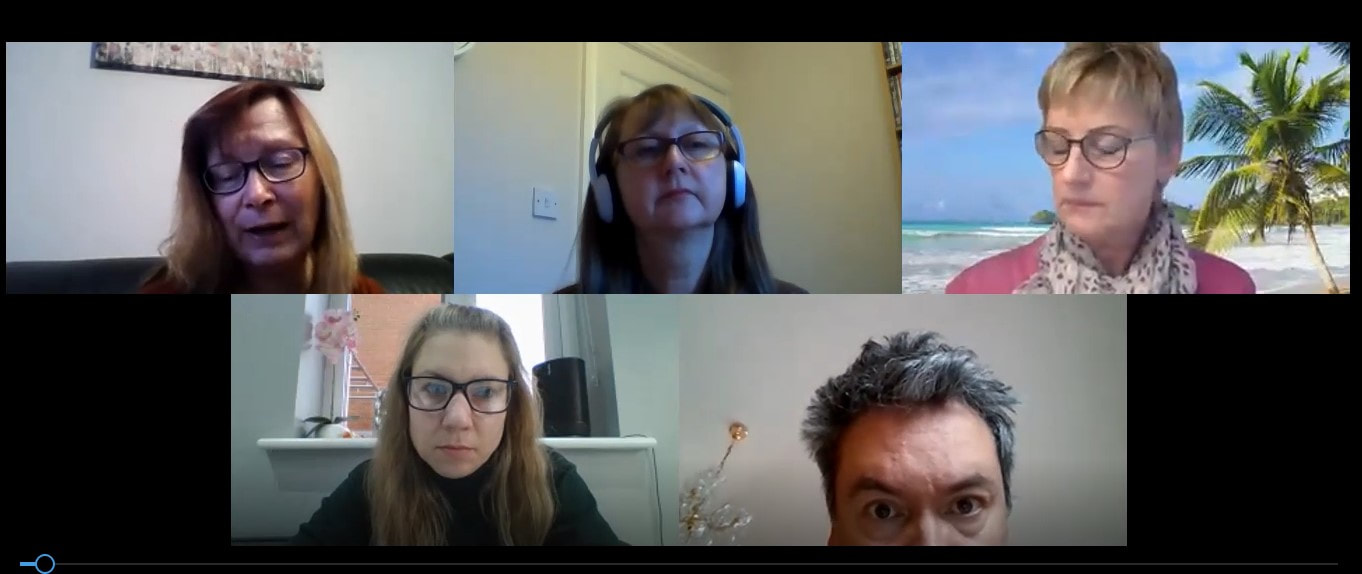
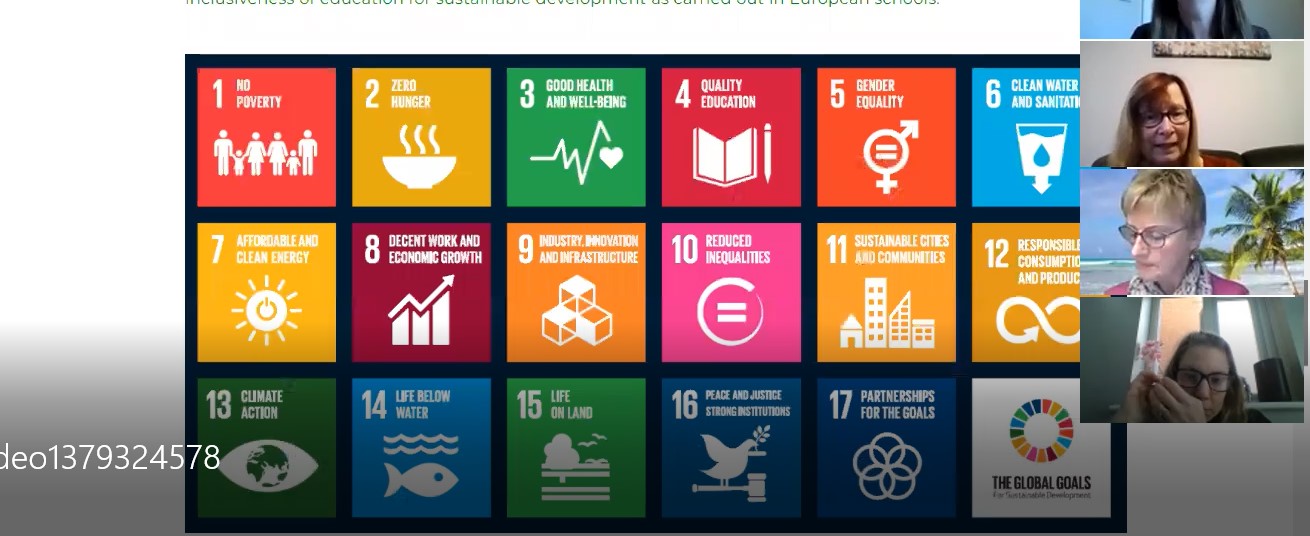
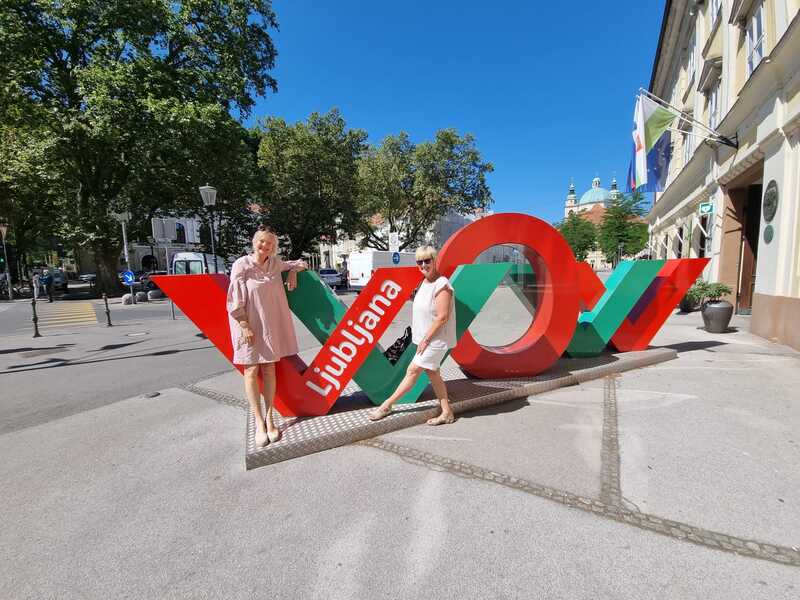
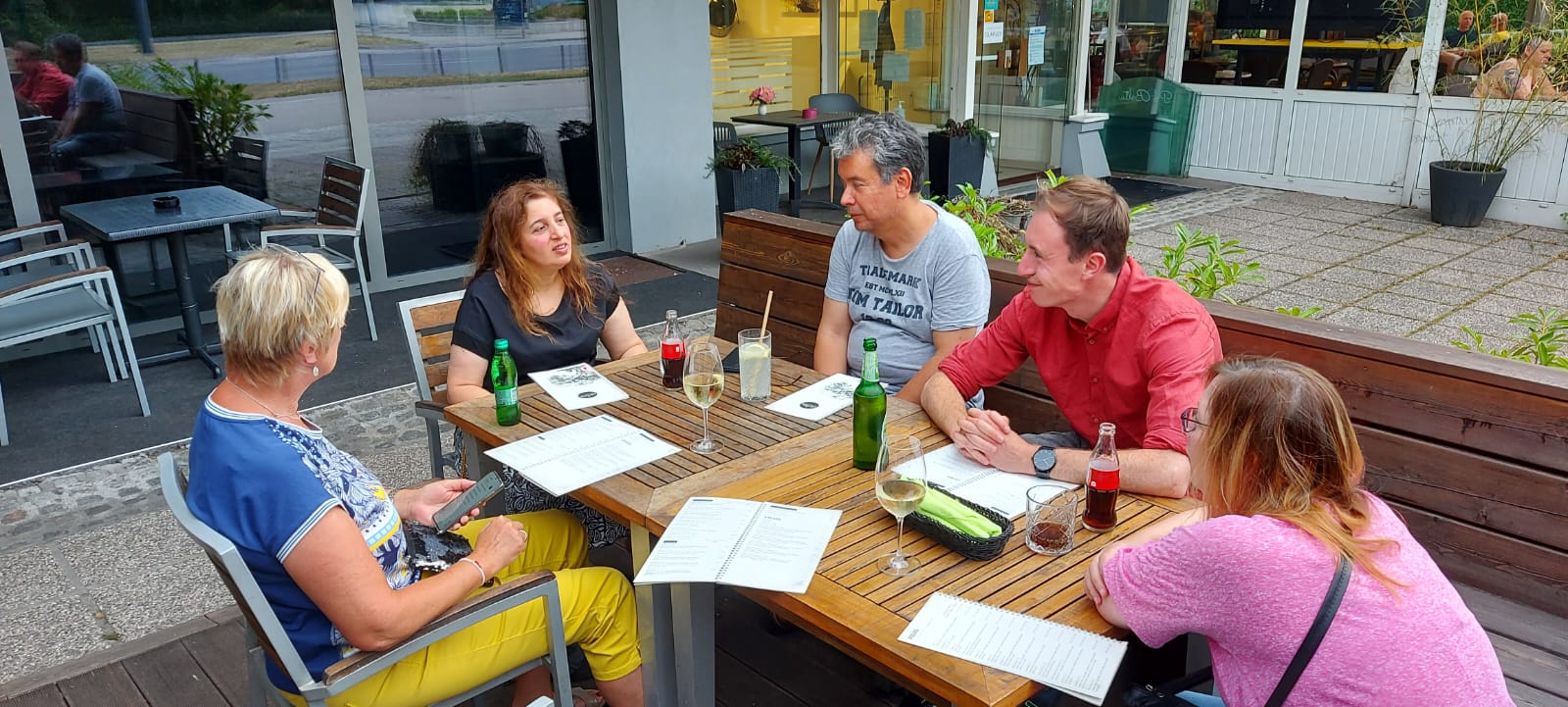




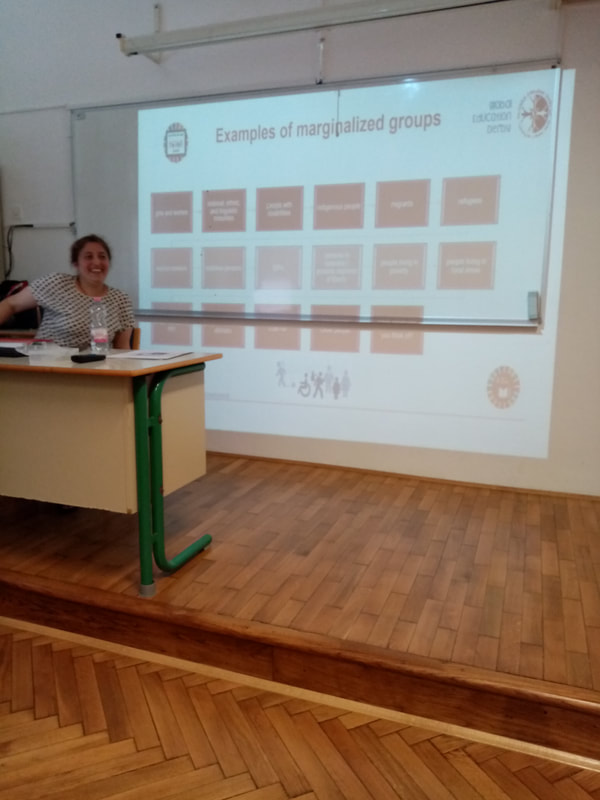
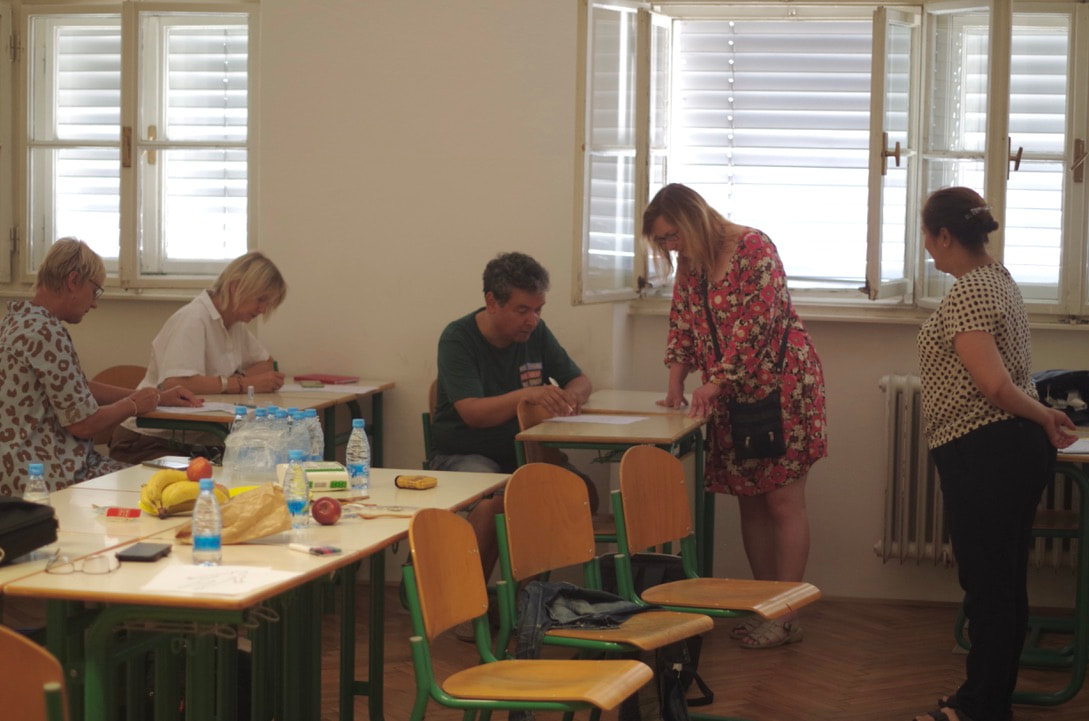
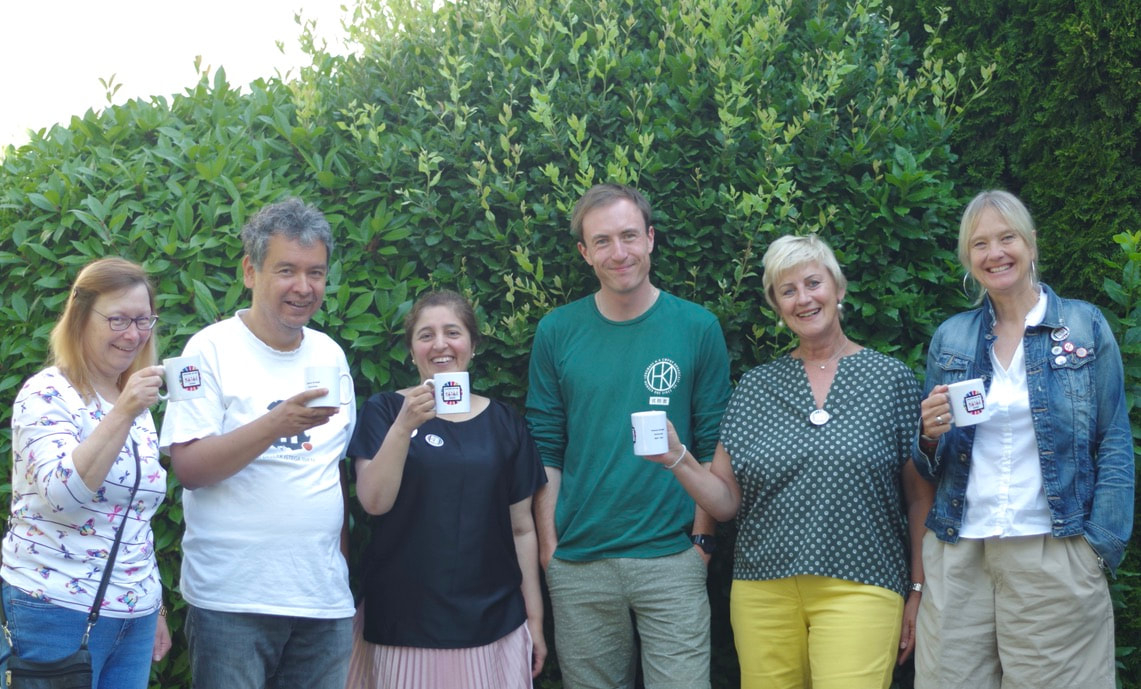
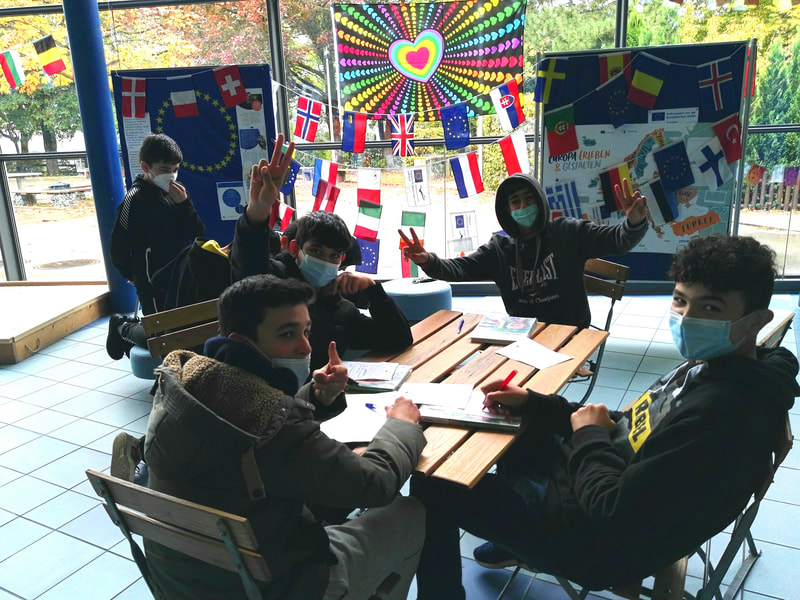
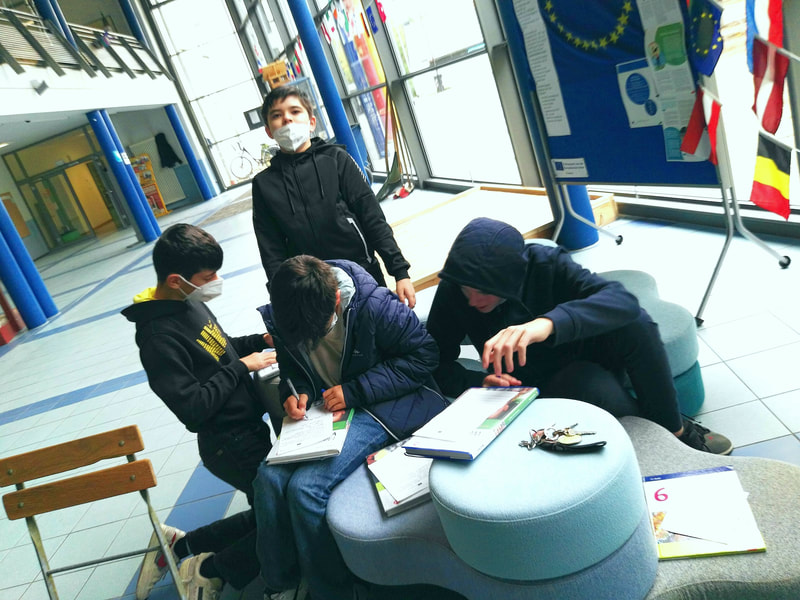
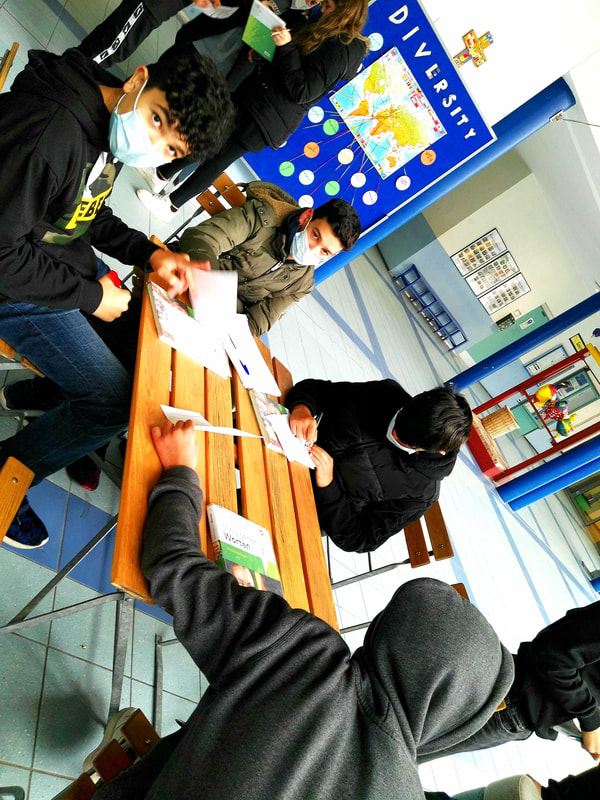
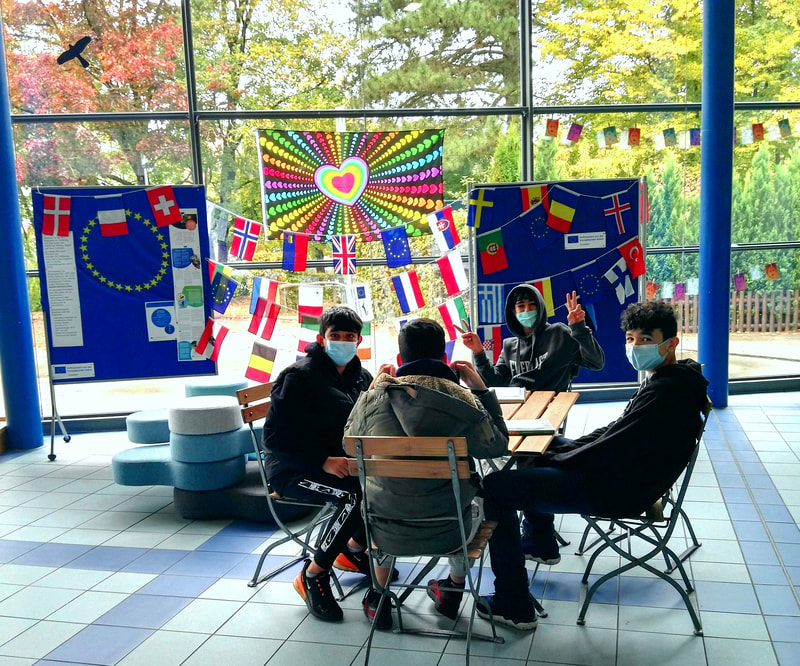
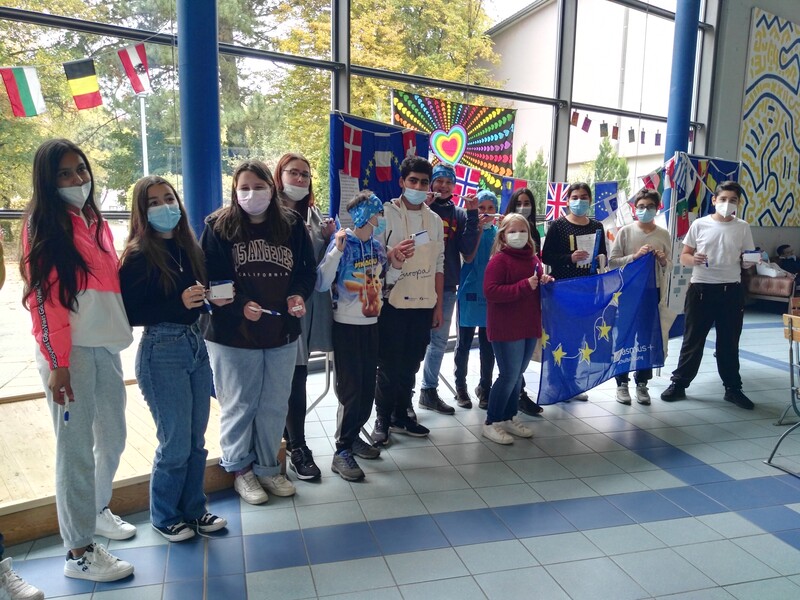
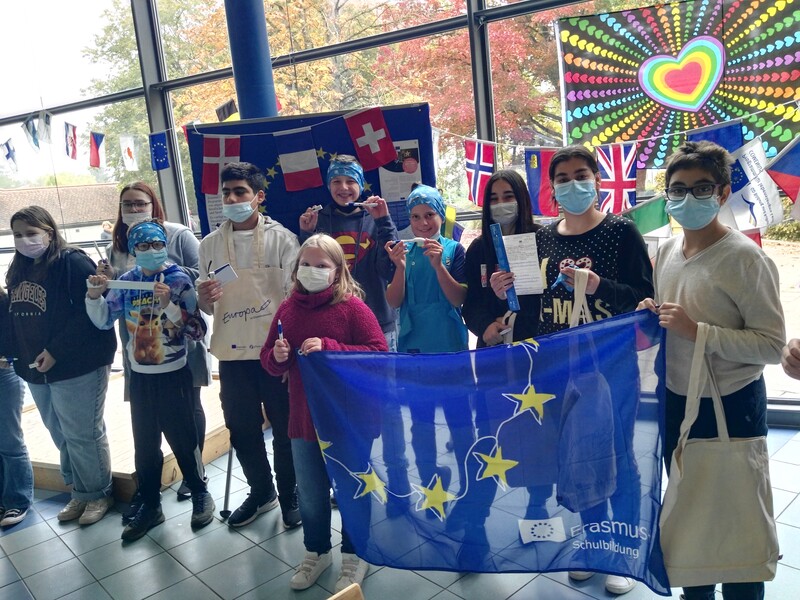
 RSS Feed
RSS Feed


